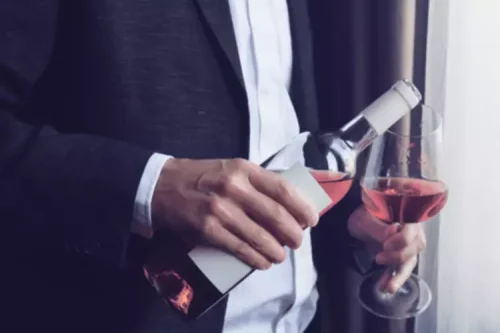
Picture an intensified mirror of oneself—a reflection with the volume turned way up. If you often drink to excess—especially if you often black out or fail to remember what you did while drunk—changing your behavior can be difficult. You may also have a pattern of using alcohol to cope with stressful situations, or as an excuse to expel pent-up anger.
Tame Your Rage and Drink Less With Reframe!
- Sometimes, people with alcohol use disorders have an unhealthy relationship with alcohol due to specific genetics.
- Support groups and 12-step programs like Alcoholics Anonymous can also provide much-needed help.
- Anger expression may also be confused with aggression or hostility, two consequences of drinking commonly cited in research.
- By perpetuating such behavior, people can end up damaging meaningful relationships — yet another effect of alcohol-based aggression.
- Continue reading to learn more about the link between alcohol and anger, including which risk factors exist, how alcohol-related aggression can be dangerous and more.
Reducing your alcohol consumption can significantly lower the risk of aggressive behavior. Reflect on your relationship with alcohol and consider speaking to a healthcare professional if addiction is an issue. Alcohol changes the levels of this brain chemical, which can influence your mood and emotions.
- Alcohol also disrupts your serotonin levels, which can disrupt your mood regulation.
- Studies have shown that serotonin levels may begin decreasing within 30 minutes of that first drink (4).
- By Buddy TBuddy T is a writer and founding member of the Online Al-Anon Outreach Committee with decades of experience writing about alcoholism.
Why Does Drinking Release the Rage? Understand Alcohol-Related Anger and Aggression

Now that we know what alcoholic rage syndrome is, can we do anything about it? In other words, can we make our inner “Sammy” or “Jimmy” (or whatever name your boozy alter-ego might have) stay away for good? In other words, we’re likely to do things — including giving others an earful as soon as we feel irked — without thinking about the potential fallout.
Ways Alcohol Facilitates Anger, Aggression and Violence
- And you may need to take steps to stop or limit alcohol consumption.
- Let’s strive together for healthier relationships with alcohol – for ourselves and our society.
- Another study published in 2011 showed that those who focus more on the present than the future were generally more aggressive and had difficulty considering the consequences of their actions.
- Alcohol can fuel rage or aggressive behaviors even when a person isn’t intoxicated.
- He, or she, is being excessively rude or aggressive, and the more they drink, the more likely it seems that they’ll fly into a violent rage.
Researchers have studied the connection between anger and aggression for years. There’s a reason the angry drunk is such a familiar stereotype. However, it’s about more than getting easily upset or having a short fuse when you drink alcohol. The outcomes of alcohol and anger can be hazardous, causing traumatizing situations for the inebriated person and the people around them. There are several risk factors, all of which impact people differently. Often, when children, spouses and other loved ones spend time close to someone who becomes abusive when they drink, their lives change for the worse.

What are the strategies to prevent or manage episodes of anger when intoxicated?
Because alcohol decreases our self-control, our pent-up rage is more likely to emerge while drinking. The study also found that those who suppress anger were more likely to drink themselves to the point of being drunk, which increased their likelihood of getting into a drunken altercation. People are more likely to respond to emotional triggers when drinking, but even the slightest hint of offense could cause a fight for the angry drunk. If you’ve ever started or been involved in a drunken altercation, reflect on what happened and how the situation could have been handled better. Binge drinking in a setting with others who are also intoxicated can lead to competitive or confrontational situations. Peer pressure and social norms can sometimes encourage aggressive behavior.

Why Does Alcohol Make You Angry? The Science Behind Booze-Fueled Rage
Studies have shown that serotonin levels may begin decreasing within 30 minutes of that first drink (4). Plummeting serotonin levels hinder the brain’s ability to regulate anger and are linked to impulsive aggression (5). Additionally, the amygdala area of the human brain is where we process emotions.

If you struggle with substance abuse, look into recovery programs. These programs offer support and strategies to manage both your anger and your drinking. Therapists can use Cognitive Behavioral Therapy (CBT) to address anger issues.
Substance Use Treatment
Now let’s consider body language as anger when drunk well – it’s surprisingly revealing! Angry drunks might clench their fists or jaws, have a tense posture, and avoid eye contact – all signs of hostility and aggression. Happy drunks display open body language; relaxed postures and wide smiles being common indicators. The influence of alcohol on emotional regulation is complex and varies greatly among individuals but now we’ve got some insights into why folks react so differently under its sway. It’s common knowledge that alcohol can significantly influence our emotions. It’s not always easy to address problematic drinking behaviors.

Quick Links
- Are aggressive people more likely to drink or does drinking make people more aggressive?
- So it’s not a matter of what specific drink makes you angry, but the nature of drinking itself that creates the cycle.
- Alcohol changes the levels of this brain chemical, which can influence your mood and emotions.
- Hanging out with other substance abusers can inevitably lead them into circumstances where hostility and violence is more likely.
- But since alcohol lowers inhibitions, it may all come spilling out when they drink.
While some people might get giddy or relaxed after a few drinks, others may find their anger thresholds significantly lowered. The good news is that there are newer, easier ways to access support for problem drinking. Online programs like Ria Health can give you access to coaching support, medication to reduce cravings, and handy digital tools. You don’t need to identify as an alcoholic to join either—whatever your goals, we’ll meet you where you’re at. And if the angry drunk is a loved one who is getting themselves into trouble with someone else, you might also try to take them away from the place of conflict.

